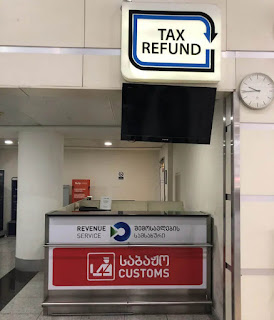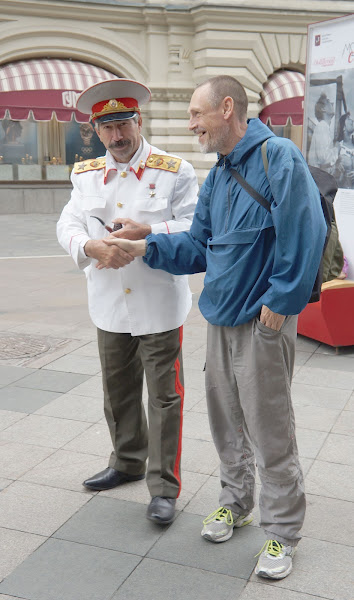Päivi got her second PhD from Tilburg University
Päivi's PhD defense and graduation ceremony was held in Tilburg University, the Netherlands. Watch the photos, video, read her speech and download the thesis.
In 2010, Päivi interviewed thirty global nomads, location-independent travellers who are wandering the world without a home, permanent job and the proximity of their friends and family. The project resulted in two nonfiction books (one in English and the other in Finnish), and a thesis on travelling lifestyle that Päivi defended in mid-June.
Päivi conducted the research in Tilburg University, Netherlands under the supervision of Prof. Greg Richards and Dr. ir Bertine Bargeman. The cooperation started when Päivi sent an email to Greg in 2011, and a couple of years later she met Greg and Bertine in Tilburg. The opportunity to work as an external PhD researcher was fantastic allowing us to continue our nomadic ramblings, both experiencing and analysing the phenomenon.
The research was formed around the question: ‘What are the factors that facilitate and constrain location-independence in the contemporary world?’ Although mobilities are encouraged in contemporary societies, the nomadic lifestyle is in many ways challenged. Global nomads question many of the norms and values of sedentary societies such as the security afforded by regular income and the safety nets of the welfare society. Global nomads also present societies with a set of new problems. By frequently crossing borders, they question important legal bases of nation-states such as citizenship, human rights and freedom of movement. Because of their alternative practices, global nomads offered the research a unique alternative environment. Through global nomads, Päivi was able to sketch what life could be like if it were less tied to particular territories, emotional and financial attachments.
The official release Päivi’s e-thesis is available at https://research.tilburguniversity.edu/.
Santeri made the attached video of the defense, which was slightly more formal than Päivi’s earlier defense in Finland. There was a beadle, a master of ceremonies, who led the event, and the dean, opponents and supervisors were wearing festive gowns and hats. The defense was also shorter. In Finland, Päivi had two opponents and the questioning took four hours, while in the Netherlands there were four opponents and the event took precisely 45 minutes. When the beadle came in and stated: ‘Hora est’, the PhD committee withdrew from the big auditorium to make their assessment, and ten minutes later they returned with Päivi’s certificate.
In the Dutch defense, the PhD candidate may have two assistants (called paranymphs) but Päivi had none. The paranymphs are mainly for moral support as they are not familiar with the subject and therefore cannot help in answering questions. What was also interesting was that the dean, according to tradition, reminds the ‘young Doctor’ of her future responsibilities such as the requirement to be of service for society, which is, in fact, pretty exactly the opposite of the aim of the nomadic lifestyle.
Päivi is now preparing a postdoc study on location-independent lifestyles, this time through the perspective of work. The aim is to study emerging forms of telework and its implications for example for knowledge transfer and social inclusion.
Speech
Ladies and gentlemen,
the dissertation I’m defending today is about modern-day mobilities, viewed through the lens of location-independent travellers, the so called global nomads.
Mobilities have increased in recent years. International tourist arrivals reached a record high last year, over one billion. This makes travel and tourism an important industry, larger than, for instance, automotive manufacturing. Business travel creates new jobs and represents twenty per cent of the growth in global employment.
Mobilities are one the key dynamics of global change and they shape both societies and individuals. The more people migrate, travel and stay in other countries, the more old-fashioned such concepts as nation-state and citizenship become. Increased mobilities show that people do not naturally belong in one place only. Several places and cultures shape their lives, or—movement itself—as in the case of global nomads.
Global Nomads
Who are these global nomads I’ve been investigating? They have been wandering the world without a home, job and proximity of their friends and family for years. They are homeless, or—depending on your point of view—at home wherever they are.
Global nomads have made unusual choices in their lives. They have given up the safety nets of societies such as public health care, social security and insurance. Their lifestyle is a statement. They consciously try to detach themselves from their home countries and the constraints of societies in order to be freer. While societies are built with the intent of making things permanent and continuous, global nomads’ lives change as easily as the wind. By choosing to be homeless, they experiment with different forms of dwelling and being at home, and by rejecting regular income and work ethic based on the moral virtues of toil and diligence, they search for alternative ways of supporting themselves. They might use work exchange and hospitality exchange where no money changes hands.
The tensions between global nomads and societies become prominent in the ‘global nomad’ concept I chose for this research. The definition derives from cultural theorist Caren Kaplan (Questions of Travel: Postmodern Discourses of Displacement, 1996) who says: ‘[a] nomad is a person who has the ability to track a path through a seemingly illogical space, without succumbing to nation-state and/or bourgeois organisation and mastery’. In other words, nomads are free agents who dodge familiar structures trying to find their own way through the labyrinths of societies. In this process, they not only participate in defining and redefining mobilities but also societies because these two are intertwined.
Trends
Although global nomads are marginal in terms of number, the trends their lifestyle represents are not. These trends include individualisation of cultures, the rise of diverse lifestyles, and increased mobilities.
In the contemporary society, people’s lives are not so much defined by social hierarchies and traditional authorities. Instead, we all face a diversity of lifestyles and we need to maintain a sense of continuity in terms of who we are and how we should live. Many people value more and more this independence which is also wise as the European welfare states seem to be collapsing under too many demands and obligations, and the lack of resources.
More and more people also want a healthier work-life balance doing voluntarily part-time work and downshifting rather than committing themselves to long working hours or mortgages that tie them down for decades. All these changes in the general mentality influence work ethics and consumption habits, and they become apparent in people’s growing interest in alternative lifestyles and the search for the meaning of life.
As global nomad represent these trends in an extreme form, they offer an interesting object for research. Thus, through global nomads, we can sketch what life could be like if we were less tied to particular territories, financial and emotional attachments, and what are the current obstacles to a freer existence, if this is attainable.
The Research
To date, location-independence remains under-explored. Studies have concentrated on more purposeful travels that have a clear beginning and an end. The nomadic travel style, aimless wandering, is not always approved or encouraged in societies. As global nomads do not necessarily return back, their travels do not result in a direct financial contribution to the home country in the form of increased talent or income.
To understand what global nomads’ travels are about, we need to delve into issues of power. Alternative life choices are never unproblematic from the point of view of the individuals themselves, people around them, or the wider society. They involve a strong agency that goes against dominant models of thinking. From this perspective, it is relevant to understand how other people and societies use power over global nomads and how global nomads themselves facilitate power.
In this thesis, I study questions of power with the theories of French philosopher Michel Foucault who has inspired critical theorists across disciplines. In this context, power is a positive and productive network that pervades the whole of society. It is not possessed by an elite but it fluctuates in all social relationships. Power is, therefore, highly mobile as is becoming for the theme of this research.
The questions that I seek to answer include ‘What is about the nomadic travel style that so captivates and disturbs the more sedentary people?’ and ‘What are the factors that facilitate and challenge location-independence in the contemporary world?’ My research material consists of interviews with thirty global nomads, who were scattered around the world from Alaska to Fiji at the time, enriched with limited participant observation and virtual ethnography.
The research results show that there are more constraints to mobilities than societies are perhaps willing to admit. We continue to live in the world of nation-states and citizenships in which many people’s identities are in contradiction with the societies they live in. The good news is, however, that when these constraints are acknowledged and there is enough political will, they can be removed.
I hope that my work sheds light on the status of mobilities, the emerging field of extreme mobilities, and hopefully inspires further studies. Thank you.











Comments